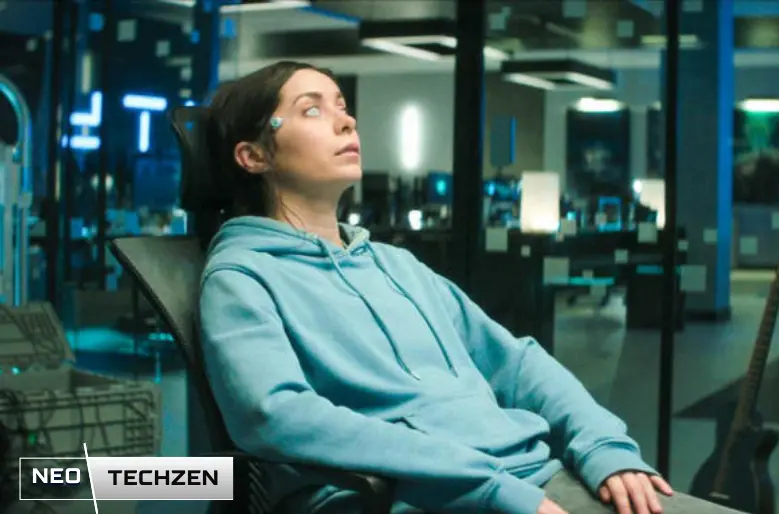What if a tiny chip could change how you think, feel, and even remember? It looks like science fiction, right? It was exactly this that Netflix played when they introduced the Nubbin chip during the launch of the Black Mirror season. What started as an intelligent marketing piece has now caused technological conversations in the real world. Here is everything you need to know about the Nubbin chip and why it’s blowing people’s minds.
Table of Contents
What Is the Nubbin Chip?
The Nubbin chip was first revealed as promotional support for the Netflix Black Mirror dystopian series. At the time, it was presented as a small neural implant that could improve memory, emotions, and decision-making. Although it began as fiction, the idea resonated so hard that developers and royal biohackers began working on similar prototypes.
Featured Snippet Answer:
The Nubbin Chip is a fictional neural implant introduced in Netflix’s Black Mirror series promotion. It simulates advanced brain-computer interface capabilities such as memory enhancement and emotion regulation, and has inspired real-world tech innovation.
How It Went Viral Beyond the Show
When fans saw the sleek, bead-sized chip and heard its outrageous claims—like replaying memories or boosting mood—they didn’t just see a fictional device. They saw a possible future.
- Over 2 million views on the promo video within the first 48 hours.
- It caused global interest in neurotechnology and brain implants.
- Mentioned by the Elon Musk Neuralink team during a technology summit.
What Makes the Nubbin Chip So Fascinating?
The chip’s features were jaw-dropping. Here are some of the claimed capabilities:
- Memory Recording: Replay memories like a movie.
- Emotion Control: Regulate anxiety, depression, or stress with neural pulses.
- Cognitive Boosting: Improve focus, creativity, and decision-making.
- Wireless Synchronicity: Sync with smart devices or other users.
Though entirely fictional at launch, these ideas mirror what real neural interface companies are developing.
Real Science Catching Up
Technologies inspired by the Nubbin Chip are no longer a fantasy. Several startups and research labs are already working on similar innovations:
- Neuralink: Developing brain chips that can treat paralysis and memory loss.
- Synchron: Building implants that let users control devices with their thoughts.
- MIT & Stanford Labs: Studying brain-to-computer interfaces for everyday use.
Ethics, Privacy & the Dark Side
The Nubbin Chip also triggered important debates. If a chip can alter or record your mind, who owns your data? Can memories be hacked?
- Ethical concerns: Who gets access to brain data?
- Security risks: Potential for surveillance or emotional manipulation.
- Health risks: Long-term effects of brain implants remain unknown.
Black Mirror wasn’t just playing pretend—it was raising the red flags we may soon face.
Is the Nubbin Chip Real?
As of now, the original Nubbin Chip remains fictional—a clever narrative tool. But what’s real is the tech it inspired and the serious push toward a future where such devices could exist.
- No commercial version of the Nubbin Chip is available.
- Inspired hundreds of tech discussions around neuroethics and human augmentation.
Final Thoughts
The Nubbin Chip might have started as a Black Mirror gimmick, but it tapped into something real—the world’s fascination (and fear) of merging mind and machine. We may not be implanting chips tomorrow, but the seeds have already been planted.
If the Nubbin Chip taught us anything, it’s this: The line between fiction and the future is getting thinner every day.
Stay curious. Stay informed. Because what’s a prop today could be your reality tomorrow.
Never miss an update! Follow our WhatsApp Channel for exclusive News and Blogs.


